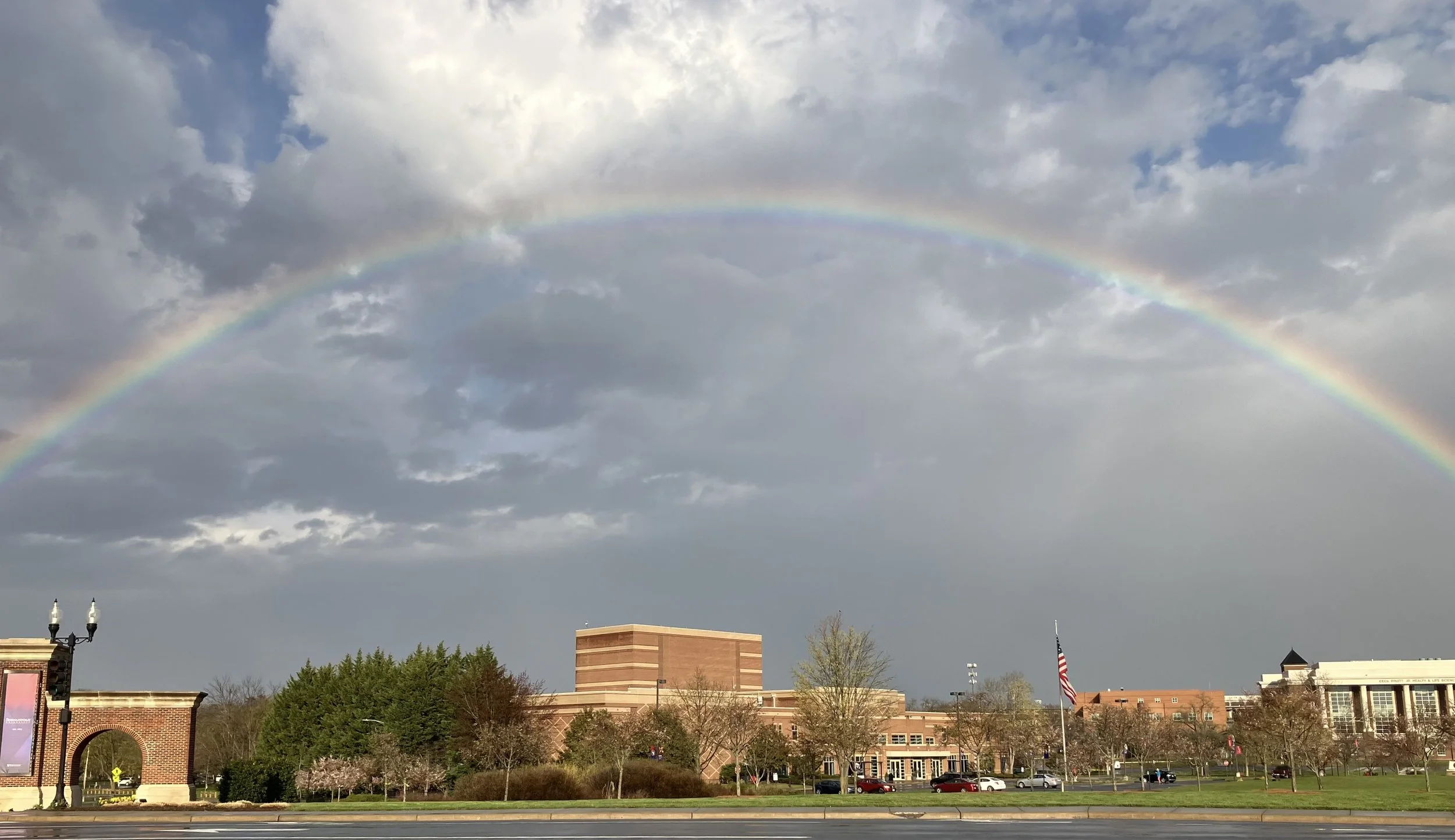Soon Linda and I will be embarking on a long anticipated sabbatical courtesy of her employer’s policy of granting six weeks of paid time off every eight years. We do not yet have definite plans other than moving at the end of May but we are very much looking forward to a break together from our usual routines. It is our first such extended period of time since our “radical sabbatical” on Nantucket Island after selling our house about a dozen years ago.
Ever since the start of our minimalist journey we have been asked periodically “what is your end game?” To which we simply reply, “we do not know but we will when the time comes.” In other words we did not launch out with a grand design of what life would look like untethered from a mortgage and maintenance. We may not know what the future holds, but we know Who holds the future and we continue to trust God for his guidance [see rainbow above].
With reference to our upcoming sabbatical, author Keri Wyatt Kent reminds us, “Keeping [sabbatical] is not only about ceasing but also about celebrating. How? By taking the time to do simple things you always say you mean to do but never have time for.” Besides moving we plan to travel and otherwise spend time together enjoying more of the simple pleasures of life.
As Robert W. Harris writes in Gypsying After 40: A Guide to Adventure and Self-Discovery, “We may have looked purposeless because we moved about with no particular plan. Compared to our former life, our new one seemed rootless, homeless and adrift. But we were not rootless; we discovered an inner place that went right along with us wherever we traveled. We were not vagabonds; we found an enduring domesticity that enabled us to feel at home everywhere. We were far from being adrift; our life flowed purposefully from a profound centeredness.” Amen.


